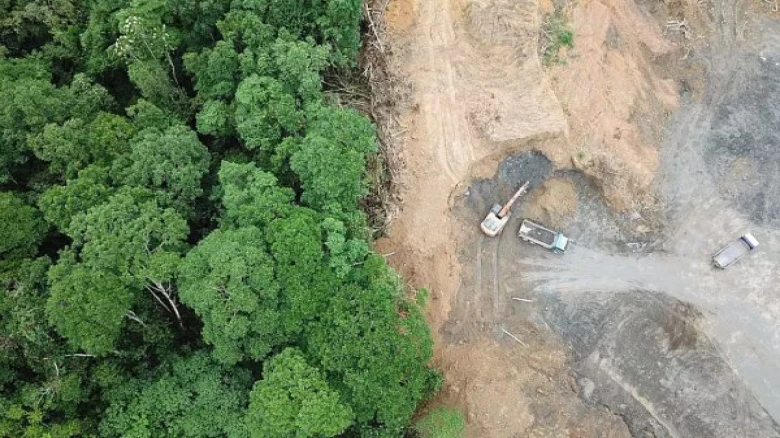Based on the findings, between 1994 and 2016, one population of pink river dolphins in the Brazilian Amazon experienced a 65% decline.
Digital Desk: As shown in a report released on Thursday, the world's wildlife populations have plummeted by more than two-thirds since 1970 because of deforestation and polluted oceans .
According to Andrew Terry, director of conservation and strategy at the Zoological Society of London, this "significant drop... informs us that nature is unravelling and the natural world is emptying" (ZSL).
The World Wildlife Fund (WWF) analysis revealed that population levels had decreased by 69% on average, based on ZSL data from 2018. The main causes of the loss were deforestation, human exploitation, pollution, and climate change.
Wildlife populations in Latin America and the Caribbean were particularly heavily struck, with a 94% decline in just five decades. According to the findings, one population of pink river dolphins in the Brazilian Amazon declined by 65% between 1994 and 2016.
According to Terry, the findings were generally comparable to those of the WWF's most recent study in 2020, with animal population levels continuing to fall at a rate of roughly 2.5% per year.
"Nature was in desperate difficulties, and it still is," said Mark Wright, WWF-director UK's of science. "The war is unquestionably lost."
However, there were some rays of hope in the report. While the population of eastern lowland gorillas in the Democratic Republic of the Congo's Kahuzi-Biega National Park declined by 80% between 1994 and 2019 due to bushmeat hunting, the population of mountain gorillas near Virunga National Park increased from around 400 individuals in 2010 to over 600 by 2018.
Nonetheless, the widespread losses have spurred desperate appeals for additional environmental support.
Increased funding for global conservation activities is expected to be one of the most pressing challenges.
"We are appealing to rich nations to provide financial assistance to us in order to conserve our environment," said Alice Ruhweza, WWF's regional director for Africa.
Delegates from around the world will meet in Montreal in December to develop a new global strategy to conserve the earth's flora and animals.

Leave A Comment